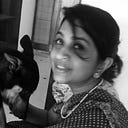Personal Memories of the 1965 Indo-Pak War
[This is a personal account written by my aunt, Sabita Sankaran]
It was exactly fifty-five years ago this month, August 1965, when we were living in Jammu. There had been persistent rumors of Pakistani activities in what we subsequently learnt was the infiltration of enemy forces to instigate an insurgency in Kashmir. Then, in the beginning of September, fighting broke out in the open when the Pakistani army invaded Chhamb, very close to Jammu, in an effort to capture Akhnoor and thus cut off India’s supply chain. It never came to pass.
Most of the out of state scientists at the Regional Research Laboratory in Jammu sent their wives and families down south to stay with relatives. My father, who was the Director of the CSIR Laboratory, stood firmly and kept his wife and two of his daughters with him. My oldest married sister lived in the UK and my younger brother, a student at The Doon School, was away in Dehra Dun. Our household also included a young servant from Katra, who went home to reassure his family and came back the very next day. So the five of us hunkered down to face the hostilities.
A deep L-shaped trench was dug in our front lawn. The very first morning when we heard the air raid we all dutifully got in. Once it was over and we had managed to scramble out my mother declared that if she was going to be killed in an air raid she was going to die in her own home and not in a hole in the ground. The trench remained unused for the duration! In hindsight, trenches are fine for soldiers facing artillery fire but not very well suited to civilians in sarees facing an air raid.
Even though we were so very close to the frontline where fierce battles were being waged our home life settled into a surreal pattern. Every morning my father and older sister, who was doing research at the lab, went off to work. My college was closed so I stayed home with my mother. Life in the town went on as usual, there was no panic, the vegetable stalls and shops were open. Our house was cleaned, clothes washed and meals appeared on time. The only difference was that we had to have our dinner much earlier while there was still daylight. The first night we tried closing all the curtains and lit a candle, but soon heard a tap on a window and a soldier from a nearby encampment very politely asked us to extinguish the light since it could be glimpsed from the outside. After dinner we sat on the verandah in the darkening twilight until it was time to sleep.
The absolutely “no light” rule also meant that we could not switch on the radio, our only source for news. Normally, the Delhi edition of the Times of India was flown in every morning via the Indian Airlines Fokker Friendship plane and we got our copy later in the morning or early afternoon. However, with all the flights cancelled we had no newspapers. We listened to All India Radio since we had no television in India in those days. Somehow that did not seem to bother us, a state of affairs totally alien to our present 24/7 news cycle. My father had compiled a very extensive and comprehensive library and we were content to spend the daylight hours reading or in companionable silence.
Since we were so close to the Border, the air raid sirens rarely came on in time to warn us. The only way we knew a raid was about to occur was when the ack ack (anti-aircraft) guns started blazing. The sight of the tracers ascending the night sky looked like diyas during Diwali, which was such a sight to behold. One odd feature of the air raids was that they seemed to occur to a fixed timetable, to such an extent that one night when they failed to show up my father sat up in bed and wondered what was the matter! We got used to the noise and the disruption and even rejoiced in the exploits of one of the gunners named Raju, in our local emplacement, who was a celebrated ace. Early one morning on hearing the guns, my sister climbed to the terrace and witnessed a dogfight between an Indian Gnat and a Pakistani Sabre, with the Gnat being victorious. My biggest disappointment was that this was over by the time I raced up to the terrace.
One particular night we heard a battalion of tanks race to the Border. On another day my sister visited an army hospital and came back with accounts of the suffering of wounded soldiers, a result of the actual devastation that war brings. In support of the cause we donated blood. In spite of the constant air raids the only known bomb dropped was on an out of commission airplane on the tarmac of Jammu airport. Fortunately, we saw the smoke but there was no casualties as the civilian airport was not in use. The tanks and heavy artillery never advanced beyond Chhamb, probably due to India’s counterattack in the Punjab, when they reached the outskirts of Lahore. I was just a young college student living through a life altering experience.
In retrospect, what I remember most about those three weeks is the sense of calm, resolve and the unshakeable belief in the local population that Devi would protect us. She did as She resided in her mountainous abode so clearly visible on the horizon, a reassuring sight.
